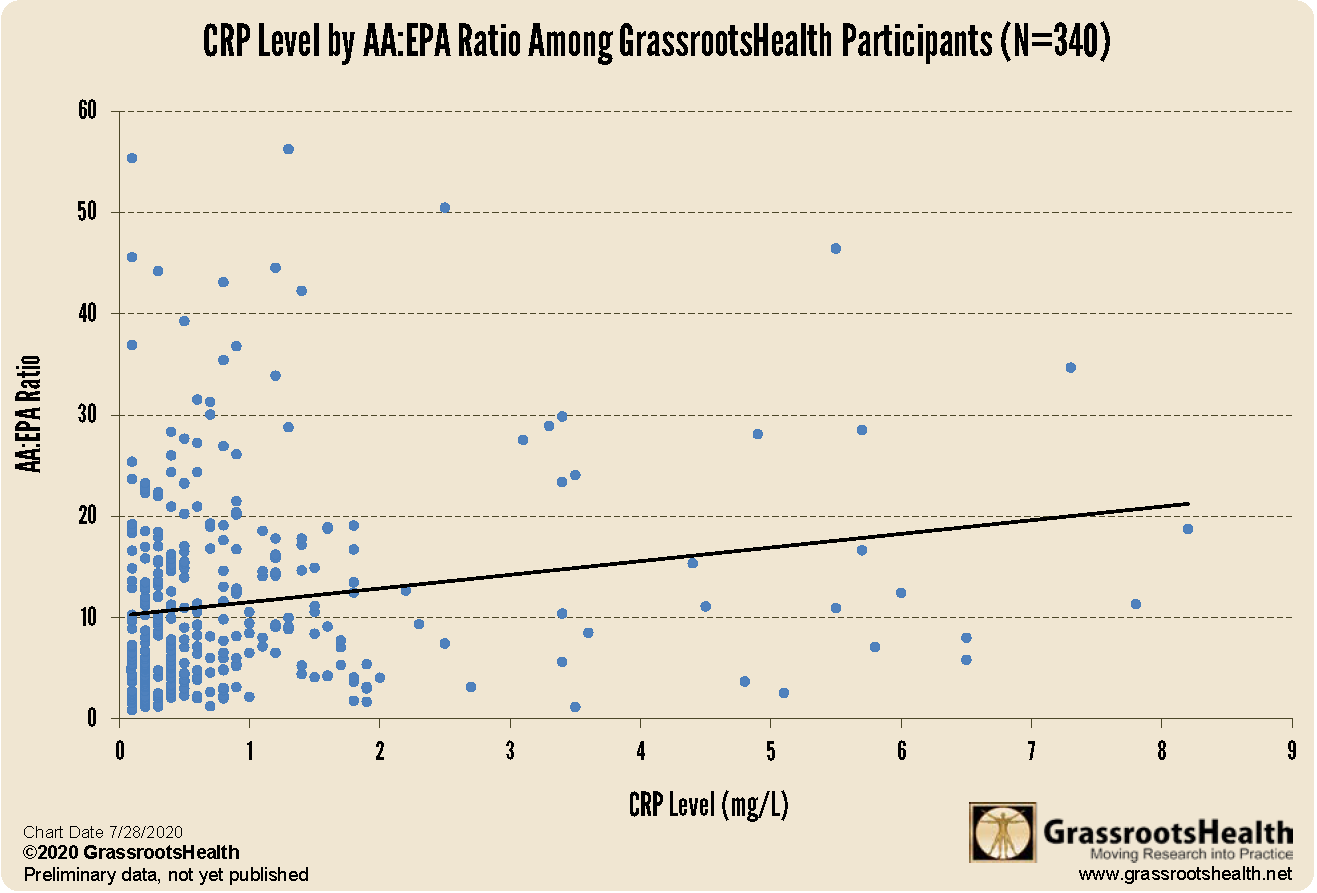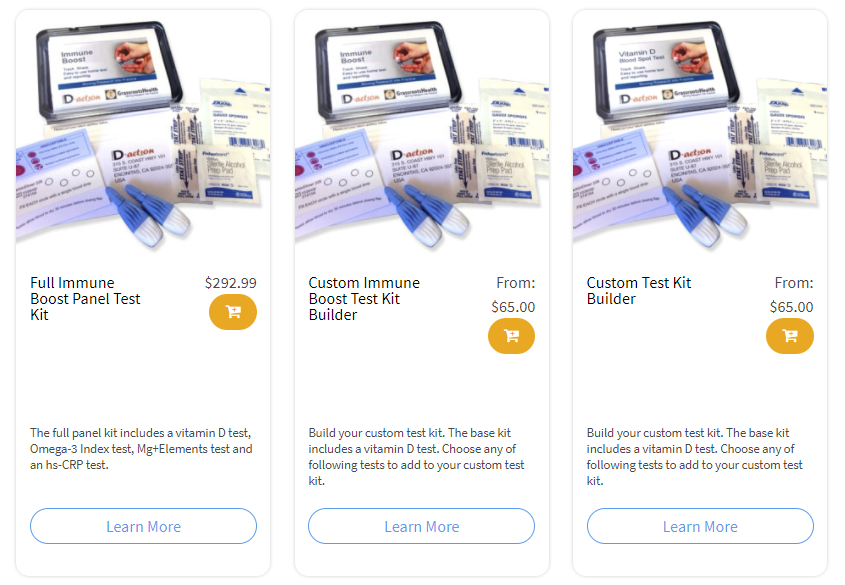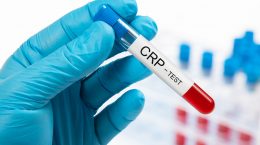Published on August 27, 2020
Higher chronic inflammation levels have been linked to an increased risk of many chronic diseases. GrassrootsHealth offers two tests that provide information about your levels of inflammation: C-reactive Protein (CRP) Test and AA:EPA Ratio Test, both part of the Inflammation Panel Test Kit.
 CRP is a protein produced by the liver in response to a very broad range of causes, such as infection from hepatitis to cancer, and is a general marker of inflammation. The AA:EPA ratio is a measure of the primary pro-inflammatory vs. anti-inflammatory omegas (arachidonic acid and eicosapentaenoic acid). Studies have shown that increasing the intake of anti-inflammatory omegas, such as DHA and EPA, may decrease overall inflammation and inflammatory markers such as CRP.
CRP is a protein produced by the liver in response to a very broad range of causes, such as infection from hepatitis to cancer, and is a general marker of inflammation. The AA:EPA ratio is a measure of the primary pro-inflammatory vs. anti-inflammatory omegas (arachidonic acid and eicosapentaenoic acid). Studies have shown that increasing the intake of anti-inflammatory omegas, such as DHA and EPA, may decrease overall inflammation and inflammatory markers such as CRP.
In previous blogs we showed the CRP levels and AA:EPA ratios among GrassrootsHealth participants. In today’s blog we will look at how the results of these two tests correlate with each other.
Correlation of CRP Levels and AA:EPA Ratios Among GrassrootsHealth Participants
The chart below shows the CRP levels and AA:EPA ratios among the 340 participants who completed both tests. The trend line shows that as CRP levels increased, so did the AA:EPA ratio. However, the strength of the correlation between these two tests was fairly low (r = 0.18), indicating that each test provides unique information about inflammation in the body. For example, 25% of those who had a CRP level below 1.0 (indicating lower risk) had an AA:EPA ratio that was above 15.0 (indicating higher risk). Therefore, both of these tests combined provide a more complete assessment of inflammation than either test alone.
Could Chronic Inflammation be Affecting Your Health?
Have you measured your levels of inflammation lately? Taking steps to lower levels of inflammation, either through diet, supplementation, or lifestyle changes, may decrease your risk of chronic disease, however, knowing your levels is the first step! Test your inflammation levels today, and take the steps necessary to improving your health.
Are You Getting Enough Vitamin D to Help Yourself?
We’re in a time of great crisis that could be greatly affected by making sure you and everyone you know has a serum level of at least 40 ng/ml. Help us help you.
Do you know what your vitamin D level is? Be sure to test today to find out, and take steps to keep it within a target of 40-60 ng/ml or 100-150 nmol/L! Give your immune system the nutrients it needs to support a healthy you and protect yourself from unnecessary diseases, especially COVID-19.
GrassrootsHealth Nutrient Research Institute has launched the new Immune Boost project with the use of our myData-myAnswers nutrient health system that over 15,000 people are already using for their health. Specific markers that influence immune health are suggested for testing as part of this project including:
- Vitamin D
- Omega-3 Index
- Essential elements magnesium, selenium, and zinc
- hsCRP
We hope to demonstrate how one can use the Nutrient Research Model established by Dr. Robert Heaney to establish the effect of vitamin D serum levels of at least 40 ng/ml (100 nmol/L) on risk reduction with different ethnicities in the population. Status and intake of other nutrients will also be analyzed for any type of relationship to immune status and symptom severity. Please let us know if you’re interested in helping sponsor this project.
CLICK HERE for updates and new information about the project.
Through GrassrootsHealth Nutrient Research Institute, you can also test your essential elements magnesium, copper, zinc and selenium, toxins such as lead, mercury and cadmium, as well as your omega-3 levels, inflammation levels and thyroid stimulating hormone (TSH) level. Find out your levels today! Log on to the test selection page (click the link below) to get your tests and see for yourself if your levels can be improved.
Make sure you track your results before and after, about every 6 months!
Click Here to Access the Test Page
How can I track my nutrient intake and levels over time?
To help you track your supplement use and nutrient levels, GrassrootsHealth has created the Personal Health Nutrient Decision System called
For each specific supplement, you can track what days you take it, how much, and many other details. This will help you know your true supplemental intake and what patterns of use work for you to reach and maintain optimum nutrient levels. Check it out today!









